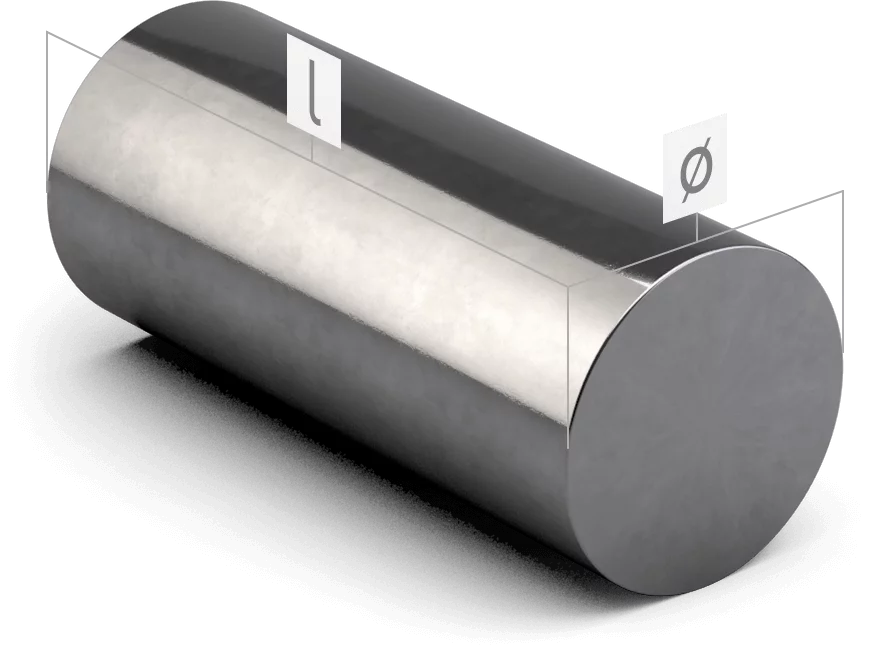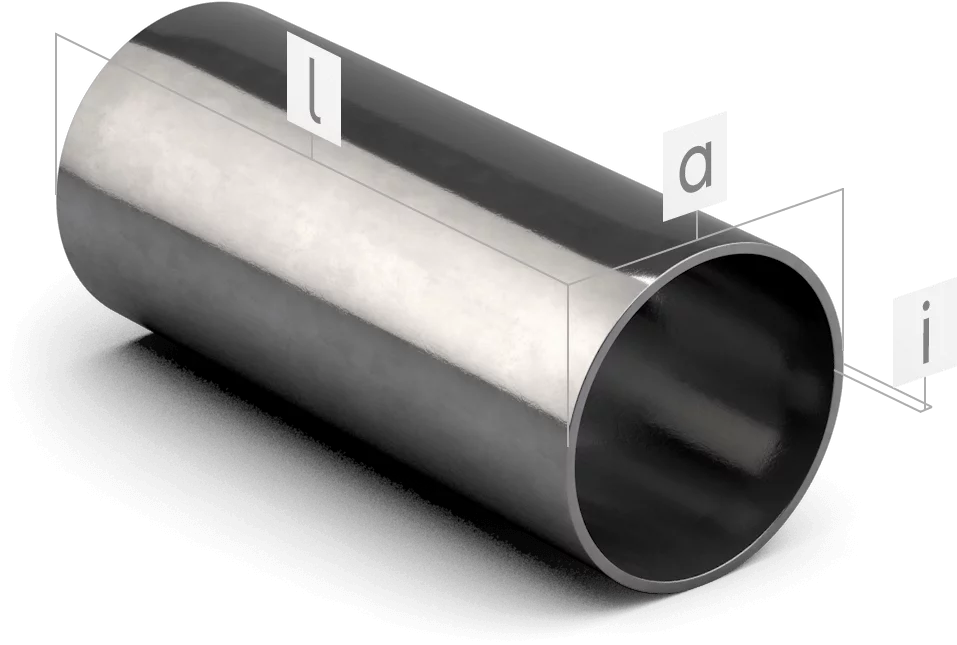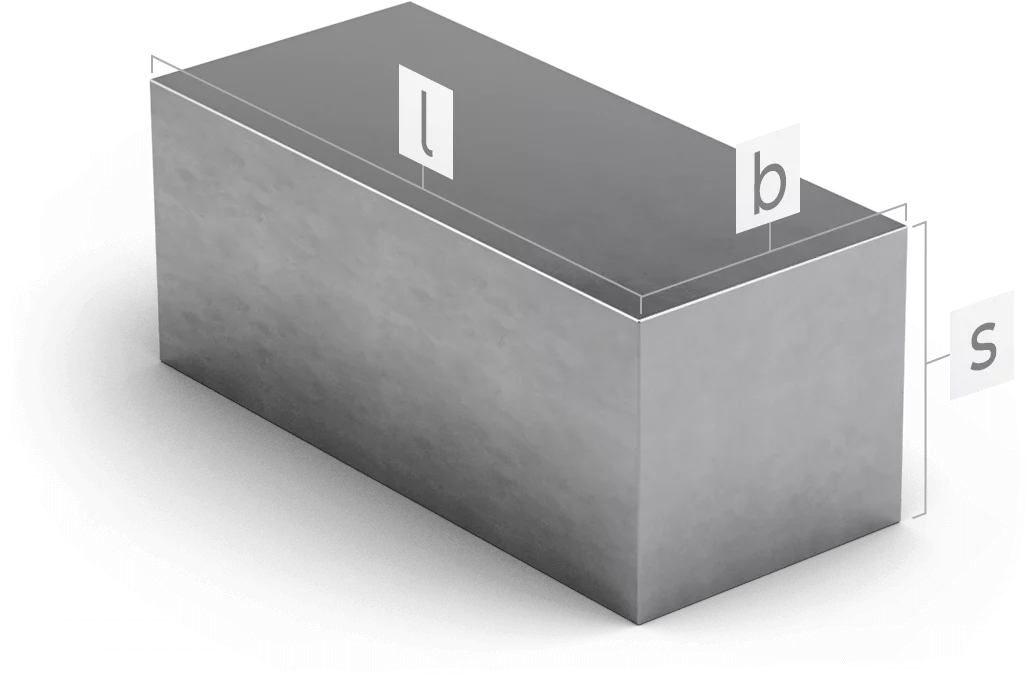Steel Weight Calculator
Easily calculate the weight of your workpiece online
With our steel weight calculator, you can quickly and accurately determine the weight of stainless steel, carbon steel, or titanium. Simply select the desired shape, enter the dimensions and length – and you’ll instantly get all relevant shipping weights at a glance.



How does steel weight calculation work?
For most steel weight calculations, we use the industry-standard density value of 7,850 kg/m³. This value has proven reliable in technical practice and provides an accurate approximation for many unalloyed and low-alloy steels. For stainless steels or special alloys, the density may vary slightly depending on the material – upon request, we provide detailed data sheets with exact material-specific density values.
Our weight calculator for steel uses geometric and physical input parameters to theoretically calculate the weight.
The calculation is based on:
● Selection of profile type (e.g., round tube, rectangular tube, flat steel)
● Dimensional data (diameter, wall thickness, length)
● Material density (standard steel: 7,850 kg/m³)
● Length unit (e.g., mm, cm, or m)
Using this input, our steel profile weight calculator determines the specific weight in kilograms per piece.
What can you calculate with the steel weight calculator?
Our tool allows you to calculate steel weight for almost all standard semi-finished and profile products, including:
● Seamless or welded round tubes
● Square and rectangular hollow sections
● Flat steels, angle profiles, T-profiles, and U-profiles
● Solid materials such as round bars, square bars, and hexagons
The results are ideal for use in quotation preparation, transport planning, engineering design, or warehouse management.
What dimensions need to be entered?
The required input values depend on the selected profile type:
(All calculations assume a constant material density – for standard steel: 7,850 kg/m³.)
| Profile Type | Required Dimensions |
|---|---|
| Profile Type: Round Tube | Required Dimensions: Outer diameter, wall thickness, length |
| Profile Type: Rectangular Tube | Required Dimensions: Height, width, wall thickness, length |
| Profile Type: Flat Steel | Required Dimensions: Width, thickness, length |
| Profile Type: Round Bar | Required Dimensions: Diameter, length |
How accurate is the steel weight calculator?
The calculator provides theoretically derived approximate values. In practice, deviations may occur due to manufacturing tolerances, surface treatments, or alloying differences. Still, the results are generally accurate enough for industrial applications in both technical and commercial processes.
What are the advantages of calculating steel weight?
Using a digital steel weight calculator offers numerous benefits:
● Time savings through automated calculation
● Reduced risk of manual calculation errors
● Use on various devices (desktop, tablet, mobile)
● Reliable data basis for planning, purchasing, and engineering
Especially practical: WITTE TUBE’s calculator connects directly to material data sheets and supports integration into your quotation or costing systems.
Sample calculations for steel profiles
Here are some typical examples for practical reference:
● Round Tube (Ø 48.3 mm, wall thickness 2.6 mm, length 6 m)
→ Weight approx. 17.32 kg
● Rectangular Tube (100 × 50 mm, wall thickness 4 mm, length 3 m)
→ Weight approx. 35.40 kg
● Flat Steel (80 mm wide, 10 mm thick, length 2 m)
→ Weight approx. 12.56 kg
These values are based on theoretical calculations using standard density.
What affects the weight of steel?
Several factors influence the actual weight of steel:
● Geometry and dimensions of the profile
● Material density (depends on alloy composition)
● Profile type (solid vs. hollow)
● Manufacturing tolerances and surface finishes
These factors should be considered when designing components or planning logistics.
Why is calculating the weight of steel important?
Steel weight calculation plays a key role across many areas of industrial value creation:
● Planning of freight and storage capacities
● Pricing and quotation preparation
● Material estimation for project planning
● Preparation of tenders and bids
Our steel weight calculator helps streamline and accelerate all these processes.






